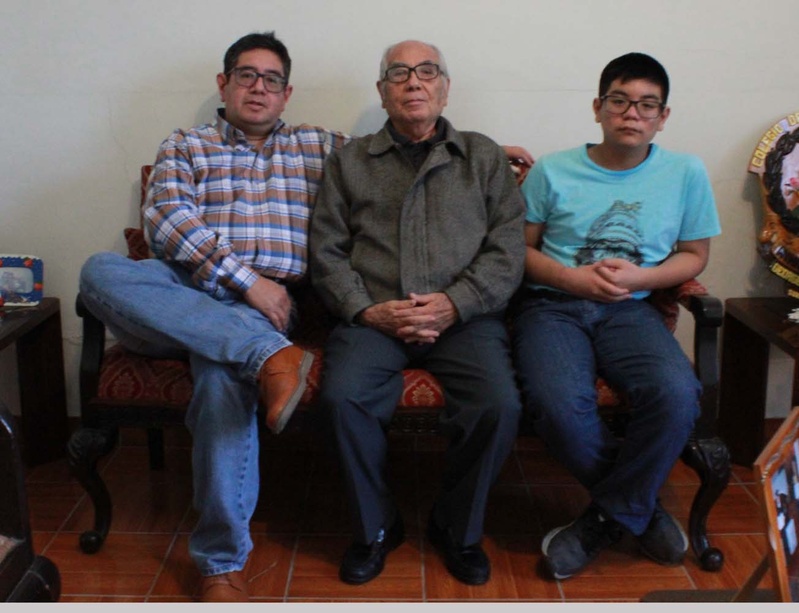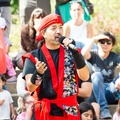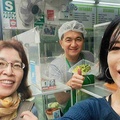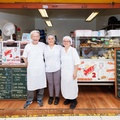Mr. Jorge Otsu Maradiegue is the father of Dr. George Otsu, who has recently been appointed Director of the Criminological Policy Directorate of the General Directorate of Criminological Affairs of the Ministry of Justice and Human Rights. As behind every great son, there is a great father, Don Jorge's story deserves to be highlighted in a separate note. Don Jorge worked for almost 40 years at the Ortiz de Zevallos notary office and is considered a master by lawyers specializing in Registry Law, although Don Jorge has never stepped foot in law school.
In this note for Peru Shimpo , let's learn about the unusual story of Jorge Otsu.
* * * * *
Don Jorge's father.
After the San Nicolás hacienda, where he arrived when he came to Peru from the Fukuoka prefecture, Don Jorge's father dedicated himself to planting rice in Lambayeque, together with his brother Guillermo. But his peculiar planting technique was a source of ridicule, because he used seedbeds instead of broadcasting, until people saw the results: the harvest was double and even triple that of the rest. Gembey, which is the name of the father, began teaching the technique, at the request of the people. But the war was already near.
Manuel Odría saved his father.
Don Jorge's father later dedicated himself to dentistry and, among the people he knew, was Captain Manuel Odría, who would later become president of Peru. During the war, thousands of Japanese living in Peru were deported to concentration camps in the United States, but the safe passage that Odría obtained for him saved Don Jorge's father. “He hid in Santa Cruz de Cajamarca, because one of the clients who bought rice from him lived there and who would become, years later, his father-in-law,” he recalls. As an anecdote, Don Jorge says: “my father carried my mother in his arms in an earthquake to protect her, without thinking that he would marry her 16 years later.” At that time, Doña María was barely two years old. Don Jorge's story begins here.
His first job was thanks to Peru Shimpo .
Don Jorge was born in Santa Cruz, a district of the department of Cajamarca, and Japanese and Catalan blood runs through his veins. Although he did not study Law, Don Jorge studied Economics at San Marcos, although his studies were cut short due to work (“he had younger brothers”). Before working at the notary's office, Don Jorge remembers that he got a job at José Nakamura's hardware store. “It was thanks to a notice I read in Peru Shimpo .”
Notary: from assistant to section head.
When Don Jorge entered the Ricardo Ortiz de Zevallos notary office, he did so as an assistant, thanks to some friends who worked there. They were the end of the 60s and beginning of the 70s. Don Jorge later rose to head of a section, on his own merit. “I organized the notary office, its reports table, the distribution of files.” But Don Jorge's unusual story is born from his self-taught spirit. “I read books on Registry Law, I talked with the registrars when I went to the Public Registries and I took the opportunity to start studying when an observation was made on a title. I wanted to know why that happened and how to solve it,” he says.
"Great master"
Don Jorge acquired enough knowledge to even explain the procedure to a registrar and help the law students who came to the notary's office, the same ones who now mostly hold important positions. Precisely one of his “students” was his own son George, who worked in the same notary office for a year. As a result of the ideas that Don Jorge had, George mentions that there were some positive changes in the registration system. Many of the people who know George Jr. mention that they still remember Don Jorge as their great teacher.
Gratitude in book.
Don Jorge is considered a reference and teacher by those who are now lawyers in Registry Law and had the opportunity to know him. George mentions doctors Alicia Shikina and Jorge Luis Castañeda Lora, lawyers and now notaries.
Dr. Jorge Ortiz Pasco, who until April of this year held the position of Deputy Superintendent of Public Records, has considered Don Jorge as one of his teachers during his stay at the Ortiz de Zevallos notary office, as mentioned in the acknowledgments of the book that he published in 2021 “The registration qualification of judicial, administrative and arbitrary documents”.
Unique memory.
Don Jorge had the ability to remember each and every one of the titles entered into the notary's office, its kardex number, its link to the title number and the amount to be paid or the observation; data that is normally written down on paper or consulted on a computer. This unique memory is a gift that even his son George highlights. “I did have to write down everything when I went to the notary.”
Don Jorge as dad.
While Don Jorge worked at the notary, his wife María took care of the children. She was a teacher and worked until noon and he returned home at 5.
“Happily, my three children were never difficult for me,” explains Don Jorge, “George, Mitsuko and Nobuko were the first in the class at school, but we carried tremendous pain for the second, who died eight days after he was born.” This loss motivated Don Jorge and Doña María to love their other three children more.
He traveled to Japan for family and stayed in Peru for the notary office.
Don Jorge traveled to Japan for a year. “I didn't earn badly at the notary's office, but the money was no longer enough,” he remembers. It was the time of Fujishock.
When the year passed, Don Jorge returned to Peru, but with a round trip ticket. His intention was to visit his family and return to Japan. “I called home every week, but I felt a tremendous thing in my heart when I saw my wife and children,” says Don Jorge, describing a scene that deeply affects all former dekasegi, including the interviewer. “No, you're not going to leave anymore!” they asked him.
But not only his family was waiting for him, the notary office where he worked had a surprise for him. During his absence, the notary office kept Don Jorge on the payroll, even though he had practically resigned to travel. “How much do you earn there?” they asked him and paid him as if he were a legal advisor. “Not being a lawyer, they treated me like one,” he highlights. Don Jorge retired in 2008.
Five times evicted.
In 2002, Don Jorge was diagnosed with colon cancer. “They evicted me up to five times,” he says, “but they saved my life and I'm still alive to tell about my experience.” Don Jorge spent five months in the hospital, until he was sent home, because he was at risk of catching any virus and that was dangerous in his condition. “I couldn't get up or sit properly on the edge of the bed, I barely maintained a 45 angle,” he explains. The doctors predicted that he would be bedridden for at least eight months. But Don Jorge overcame the diagnosis and was on his feet after five and a half months. He believes that it was his granddaughter Hatsumi, who gave him the will to live. Doctors, however, attributed his quick recovery to his Japanese ancestry. “If it were up to me,” one told him, “he would have shot me.” Cancer did not defeat Don Jorge. He will turn 78 at the end of the month.
* This article was originally published in the Peru Shimpo newspaper , special edition for Father's Day, on June 19, 2022.
© 2023 Milagros Tsukayama Shinzato / Peru Shimpo






